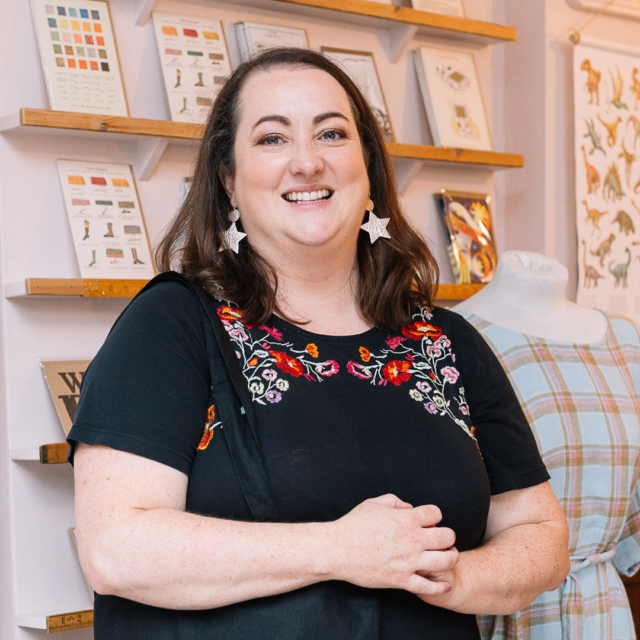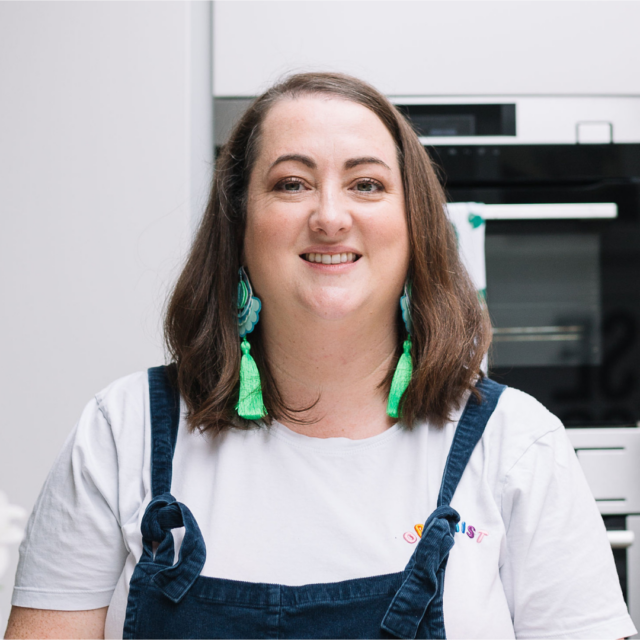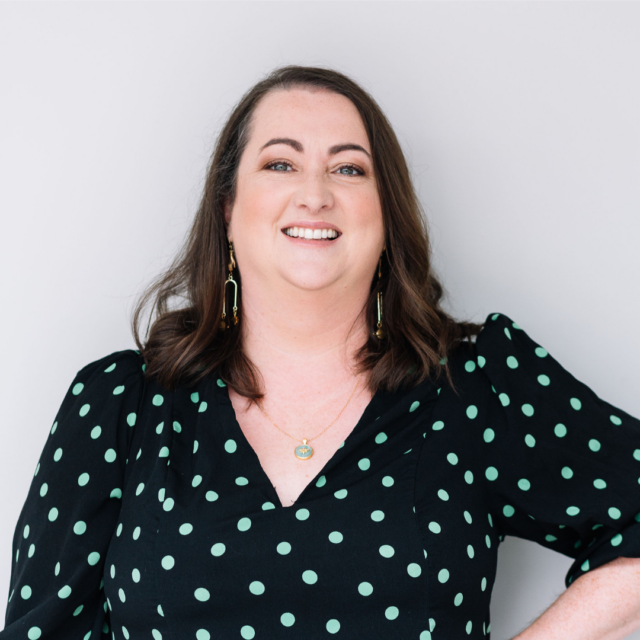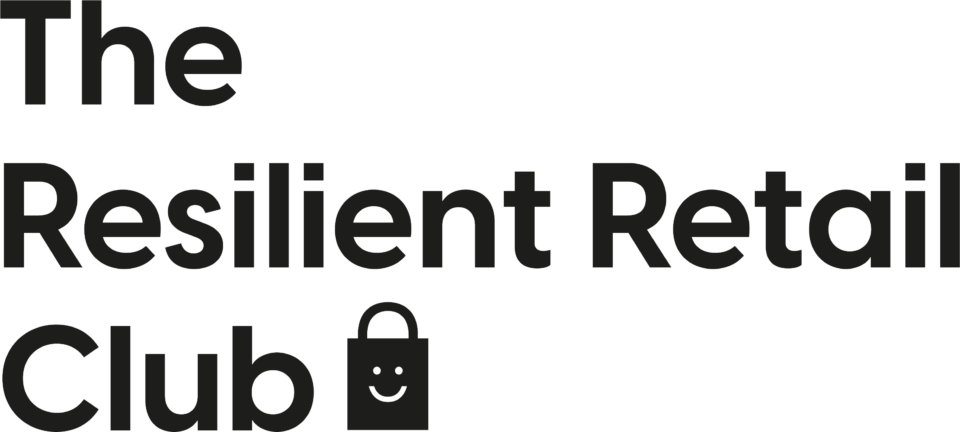Catherine Erdly: Do you want to scale your business? In other words, do you want to grow it further than where it is now? Or maybe you’re in the process of growing it and you want to feel more comfortable and proactive with what’s happening to you and to your business.
Hi, I’m Catherine. I’m the founder of the resilient retail club and also your host today on episode number 178 of the resilient retail game plan podcast.
Today we’re going to be talking about five questions to ask yourself as you scale your business.
Welcome to the Resilient Retail Game Plan, a podcast for anyone wanting to start, grow or scale a profitable creative product business with me, Catherine Erdly. The Resilient Retail Game Plan is a podcast dedicated to one thing, breaking down the concepts and tools that I’ve gathered from 20 years in the retail industry and showing you how you can use them in your business. This is the real nuts and bolts of running a successful product business, broken down in an easy, accessible way. This is not a podcast about learning how to make your business look good. It’s the tools and techniques that will make you and your business feel good.
Confidently plan, launch and manage your products and feel in control of your sales numbers and cash flow to help you build a resilient retail business.
What I wanted to dig into today, Is to really help you understand that if you’re in this process of growing your business Then there are five key questions that you need to ask yourself to make sure that you’re going in the right direction
Many people if you ask them what they want for their business will say that they want more sales. That they want to pay themselves more that they basically want to Create something that can support them financially.
And some people will say that they want to take this as big as they can get it and want to make their business a household name.
Whatever success looks like for you, then I’m totally in support of your vision of success. But the key thing really here for me is it’s got to be your vision. If your vision of success for your business is to never have to deal with having a team, to be able to work on everything yourself and not be bothered by other people.
If you want to spend most of your time doing your creative pursuits without building a team up around you and having to manage people, then I absolutely support that. But if you are looking to scale, to grow above where you are now, and you’re wondering how to get started or what to even do, what to look at, or what comes next, then today’s podcast is for you.
So I’m going to talk you through some of the key questions that you need to be asking yourself in order to grow sustainably. And by growing sustainably, what I mean is growing such a way that yes, there’s going to be challenges along the way, but ultimately you’re doing it in such a way that you are leaning into what you want, that you’re building a business that is heading in the direction you want it to do.
It’s true to your vision and that you feel really clear and excited about building.
I’ve had the fortune to work with a lot of people at various different stages, and I’ve worked with a lot of fast growth businesses, people whose businesses went viral, people whose businesses have just had rapid growth, and they’ve just seen huge increase in sales.
They’ve really hit the nail on the head with their product, or they have been Intentional or sometimes just lucky with the promotion that they’ve got around their business, which has meant that sales have suddenly gone up. And I’ve seen people who’ve sustained growth year after year after year. So the business that they’re dealing with three years in is very different to the one that they started with.
And I absolutely love supporting those kinds of businesses. It’s always really exciting to me to help work with a founder, to put those. Fundamentals into place and to put their structures into place. But I also know that it is super stressful to many people will say that, okay, if only I could get more sales than everything would be fine in the business, but I’m here to tell you not to, not to frighten you off.
But to say that that’s actually not strictly true, that if you add more sales to something that is a bit of a mess, you just get a bigger mess is mess plus growth equals bigger mess. So. What I really want you to think about are these questions that I’m going to run through today and to get you to Start pondering them so that when it comes to growing your business, you know that you’re heading in the right direction.
Question 1: Are you built on firm foundations?
Catherine Erdly: So question number one, this is where I like to start, especially when I’m working with people one to one in my mastermind. We start with this question. Are you built on firm foundations? What I mean by that is, have you checked your profit margins? Do you know if you’re making enough money every time you make a sale?
Because more sales that are not very profitable just means. More expenses for you as a business owner and not necessarily that cash rich business that you really dreamed of having. So I would definitely recommend that you take a look at your key numbers, things like your profit margins.
Things like the amount of stock that you’re holding. Do you also have a plan for your stock? Do you have a budget that you’re working to to make sure that you’re not getting overstocked? Do you have a really clear idea of the seasonality of your business, how much stock you need to bring in to meet your peaks, for example?
Do you have a really clear way of how you’re going to tackle stock when it’s not performing? These are all key numbers that you need to know as well as things like your breakeven analysis. So understanding what level of sales you need to cover the expenses in your business. This can go a long way to helping you get really clear on the shape of your business, how many expenses you can support, and also to really help you with your decision making.
And when it comes to adding expenses in, for example, Expanding to a larger unit or bringing in new members of staff. These are all really important places to start before you grow, because you really can’t grow, as I said, your foundations are shaky. It’s like building a house on quicksand, it will just not be something that is sustainable in the long term.
It might look really good, but the cracks will soon start to show. So, before you go for any sort of growth, definitely looking at your firm foundations.
Question 2: Who are you actually trying to reach?
Catherine Erdly: The second thing for you to think about is who are you actually trying to reach? Before you look to grow, Make sure that you’re really clear on who your ideal customer is.
And also think about how exactly you want to go about growing. Is it that, for example, you’re going to add another customer in that you’re going to start appealing to, or are you going to be looking for? More of those existing customers. So you’re thinking, no, I know exactly who I want to serve. And I’m happy that I’m serving just those people.
And I’m going to look for more people like that in various different ways, whether that’s in a different geographical location through a different sales channel, through amplifying your paid advertising, all of those different things. And so thinking about who you’re trying to reach is absolutely critical when it comes to scaling.
Again, the reason for this is about focus. It’s about not getting distracted, not getting pulled in too many different directions. You’ve got to where you are because people really resonate with your product. And the reason for that is usually because you have got a great idea of who your customer is and how you’re serving them.
So as you look to grow and scale, just make sure that you’re really clear on who that customer is. And if you are intending on adding an additional customer or trying to appeal to a broader range of people, just make sure it’s definitely the right thing to do and just get really clear on who that core customer is and how you’re going to serve them.
Sometimes the way that people scale is that they offer additional products to meet somebody’s lifestyle. So let’s say you’re a candle brand and you decide that you’re going to expand to cover people who don’t use candles instead they use diffusers. That could be as simple as that saying it’s an extension of my current brand.
It’s an extension of my current customer, but you’re really, really clear. I’m really intentional about it as you grow. What you don’t want is this scattergun approach. I think one of the most difficult things I’ve seen people do as they grow is get pulled in too many different directions. They start doing so many different types of products that all of a sudden they go from having a reasonably simple supply base where they’re dealing with maybe one manufacturer, maybe two, to dealing with 6, 7, 8, 9, 10 manufacturers, which adds in a whole other level of complexity to their business that wasn’t there before.
Now, as you grow, you may well want to add in new manufacturers, new product types and reach new types of audiences. But it’s something that I really encourage you to do mindfully and carefully. And to really think about it as you’re growing and expanding. And actually a great thing to do before you go too much further is make sure you really do understand the customer you already have.
Have you spoken to them recently? Have you had any coffee mornings where you’ve got together customers that you know, really love your business and ask them who else they shop with, what else they’d like to see from you? You try to get direction from them. It could be, uh, in person, if you’re lucky to live near some of your ideal customers, it could be on zoom.
People are usually interested in giving their opinion. And if they really love your brand, there’s no reason why you can’t tap into that to get a really clear sense of who, not only who you’re serving, so seeing those customers in the flesh on the screen, really understanding them, but then asking them what they want from you next.
Question 3: What makes you special? So what is your unique selling proposition or USP?
Catherine Erdly: And that feeds into number three. What makes you special? So your unique selling proposition or USP is something that you may well have thought about when it Came to starting up your business. You were thinking about, well, how am I offering something different? How am I offering something that my ideal customer is going to love?
It’s no different when you’re growing, when you’re looking to scale, you want to make sure that you are really, really clear about what it is that you’re offering people that is special, that is different. And. Being really clear about your DNA, your brand DNA, that’s only going to help you as you grow, because it will help you stay true to that DNA.
As you go to more customers, you expand your operations. You maybe bring on new team members. It will help you build the kind of culture that you want in your business. And it will also help you as you make decisions to add a new product. If you’re not really clear about what makes you special, what sets you apart from other people, Oh, you just been kind of winging it so far and just adding stuff in as you go along.
It’s a really good time to stop and pause and to think about what your USP is before you go much further, because the clearer your direction, the clearer your vision for what the business is and where it’s going, the better it will go. If you’re just going out there in a very haphazard way and just trying to grow by doing whatever.
Pops into your head one particular day and without having a clear strategy and a clear USP, then the business will very quickly start to feel fragmented. The business will start to feel pulled in multiple directions and you may find that you’re losing that core customer that loved you so much in the first place when it was really clear.
What you did, who it was for and what you made you special. So as you grow, keep that in mind, what is making you special? What is your USP and make sure that that USP is really resonating through absolutely everything that you do.
Question 4: Do you have the systems? Are you ready to grow? How much of your business lives in your head?
Catherine Erdly: The fourth question I want you to ask yourself when it comes to scaling the business.
Is do you have the systems? Are you ready to grow? And this is a question that is maybe not the easiest to answer right away, but I’d put it to you this way instead, how much of your business. Lives in your head. I can’t count the number of times I talk to somebody and they say it’s going really well, I’m growing, but there’s usually a couple of things that are really bothering them.
First up is that they know that a lot of the business is in their head. So we do what, for example, to get it out of their head. How do you systematize? How do you work with your team to help you create standard operating procedures and manuals and things like that, which I will guarantee you are not going to be top of your list when it comes to the most exciting things that you need to think about, but when it comes to you being able to grow and you being able to really.
Relax and grow in a way that feels good. Then having these systems, these written processes, these procedures in place will go a long way to improving that and improve how you feel about it and improve the efficiency of your business as well. So that’s one of the first things that people worry about.
They know it’s all in their head. They say, you know, if I got hit by a bus tomorrow, what would happen to the business or if I got ill and I couldn’t come in or whatever else might happen. All of these things that we worry about as founders, single founders. Then the question is, is how much of it is written down?
How much of it is not in your head? The second thing that happens is you become the bottleneck. So I work with people quite often who have frustrations around their teams or around at least being that point of contact for everything. One of the things that we really need to be thinking about as a founder who is growing is about pulling yourself out of the day to day and not being the person that everybody goes to.
All the time. So be honest with yourself. Do you have the systems in place? Do you have procedures? Do you have things that people can refer to? Do you have team structures in place that isolate you as the founder from having to answer every single question or at the very least some kind of documentation that is making it easier for you so that you don’t have to be the point of contact for everything?
The bottlenecks. This is really about you understanding where the bottlenecks are in your business. And one of the ways that you can look at this is imagine if you were given the chance to go on a four week all expenses paid trip around the world. Could you do it? Would you be able to leave the business for four weeks?
And if you can’t leave the business for four weeks, is there a reason why, what are those reasons? Where are the bottlenecks? Where are the pinch points where you as the founder of such an integral part of the process that you can’t actually step out? So these are all things that are really useful for you to be considering as you grow, what your systems are and how basically you’re going to get your business out of your head so that other people can help you with it.
Because if you’re the only one who can do the key work or there’s something in every single process that you’re the only one doing. That can do it, then you will effectively bottleneck your own growth and in order for order for the business to grow. And we talked about this a lot. If you heard, heard recent podcasts, I guess I’ve had on, for example, Lindsay Schneider, who was on a couple of weeks ago, she talked specifically about this in her business, getting to the limelight where one of the things that really helped her grow and double her sales every year for several years now.
Has been for her to get outta the way as the founder and to allow other people to come in and do things so that she’s not the bottleneck in the business. And it’s very, very hard to grow when you are the bottleneck because ultimately it will put you under an immense amount of pressure, and it will just simply mean that everything will slow down.
You’ll also get sucked into the day-to-day. You won’t be able to be strategic. And all in all, it’s just not something that is sustainable. And it doesn’t really couple well with growth.
Question 5: Are you prepared for the fact that there will be challenges along the way?
Catherine Erdly: So then the fifth question to think about with growing your business is, are you prepared for the fact that there will be challenges along the way?
One of my favorite phrases, new level, new devil. In other words, as you grow, we think that we’re going to be solving all our problems because we’ve got more sales coming in, but lo and behold, There are new problems, new stresses, new things that concern us. And it’s not to say that one level of growth is better than another or that we should all immediately retreat back to a previous level if we find ourselves in a situation where we have got a new level and a new devil.
But it’s really to say that are you mentally prepared for the fact that as you grow there will be changes and do you have the support in place? Do you have people that you can talk to someone that you can bounce ideas off? If you’ve got a team, then maybe somebody in the team fulfills that. But sometimes if you’re the person who has a team, then it can actually be really difficult because you don’t want to worry other people that you manage about.
With concerns about the business or you just don’t really feel like they share your perspective because you’re the business owner and they’re the employee. Or you may just feel it’s not right to burden your employees with all of your thoughts and concerns about the business. So are you ready for that growth?
Are you ready for bigger numbers? Are you ready for decision making, placing bigger orders, agreeing larger amounts of spend on various different things? Are you equipped to do that? Do you feel like you’ve got the numbers at your disposal to help you feel confident in making those decisions?
Whether, as I said, that’s increasing your stock investment, whether that’s signing off new stores, signing off new team members, or increased ad spend. Do you feel comfortable in that scenario? Do you feel like you’ve got the numbers and the support you need to help you do that? And do you feel like You’re prepared for these decisions.
And do you feel supported because it’s really key that you understand that your unique gift to the business is the fact that you have got the vision and the drive to grow it. And that is something that I work with founders of fast growth businesses on a lot is this understanding that you can get other people to do almost anything for you in your business, but what you can’t get them to do, or it’s much, much harder to find people who match your level of enthusiasm and excitement about your business.
So as you, you as the founder need to think about where you can get that support, whether that’s working with a consultant, a mentor, such as myself, whether that is somebody else that you have a small business owner that you, you have that in your life, who’s someone you can trade ideas with, whether it’s a community such as the membership or my mastermind, where you can talk to other people in similar situations and get their, their feedback and their support.
But just be aware of that, as he said. Growth is not a walk in the park. It will come with its own challenges, making sure that you are prepared and ready for those challenges and you have the support in place. I really do believe that you getting support as a founder is really crucial. I certainly get support a lot in my own business.
I work with business consultants, people supporting me, experts on a whole variety of different topics in my business to make sure that I’m moving in the right direction. And it is hugely, hugely beneficial to me as a founder to not be trying to come up with all the answers myself. So, there you go. There are the five questions that I want you to ask yourself when it comes to thinking about growth.
Number one, are you built on firm foundations? Do you know that your underpinnings are solid? Have you checked your profit margins, pricing recently? Your breakeven analysis and your stock management, how are they all doing? Number two, are you really clear on who you’re trying to reach and who you’ll be trying to reach going forward?
Have you spent some time recently with your ideal customer and do you feel super clear on who they are and what they want from you? Number three, are you really clear on your USP? Do you know what it is that makes you special, sets you apart, and what it is that your customers absolutely love from you and to get from you?
Number four, Where are the bottlenecks? Do you have the systems in place to grow? Do you feel confident that if you were to increase your sales and orders that you would not be standing in the way of that growth? Or is there work to be done in terms of putting in processes, looking at the structures and identifying how you can take yourself out of the business?
And number five, are you ready for the challenges of growth? Are you comfortable that you’ve got the support that you need, that you’ve got help with decision making, you’ve got people around you that you can rely on to ask questions and to help you moving in the right direction and help minimize that stress of moving to that next level and try and Avoid reinventing the wheel if you’ve got people who can help you Not take shortcuts because there aren’t really shortcuts But just get really clear on how you can be most effective and efficient with your growth
So I would love you to join me if you want to head over to instagram at resilient retail club and say hello Tell me what you thought of today’s episode I would also love to invite you to send me a dm and with the dm on instagram write 6figmonth. That’s the number six F I G M O N T H or one word. If you DM that to me, then I will send you a link to sign up to a brand new free talk that is happening on Thursday, the 4th of January. And that is all about how to go from six figure years to six figure months. I’m really excited about this talk.
It’s going to be super practical and it’s happening then at. At 10 a. m. on the Thursday, the 4th of January, 2024. Can you believe it? And it is going to be about everything that I’ve learned from working with people who have scaled their businesses. Specifically, they’ve gone from six figure turnovers to having six figure months, and I’m going to talk about some of the key, really practical things that they did along the way.
So that if you’re in that situation, when you’re. Close to or at that six figure turnover, but you want to take it to that next level where you may be hitting those six figure months. Then come along to the talk and I’m going to be sharing some real gems and some really practical strategies. So you can get that link by looking in the show notes down below from the podcast.
You can head over to Instagram and the link will be in my bio and you can also send me a DM with six fig month. That’s the number six. FIG month, all one word, send me that DM and you will get sent the link to sign up.







